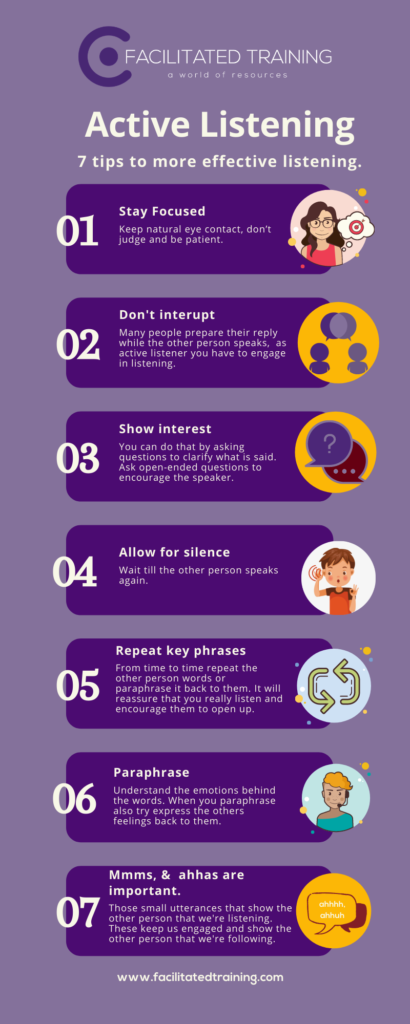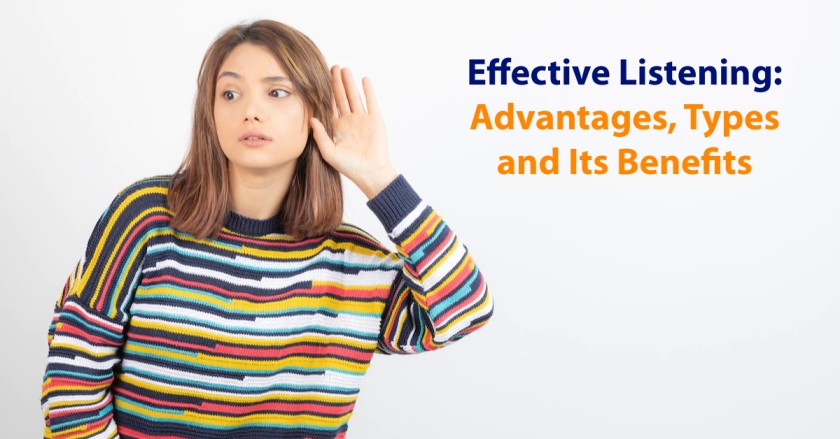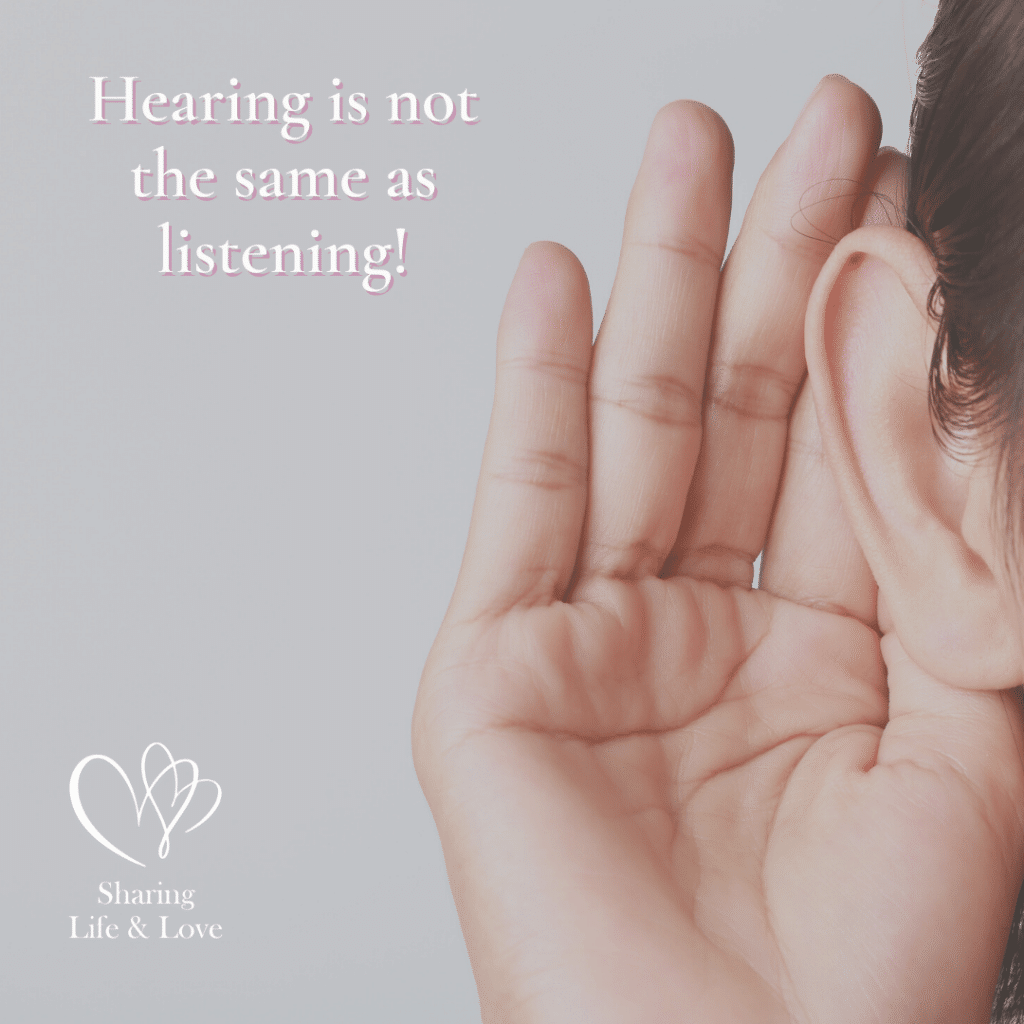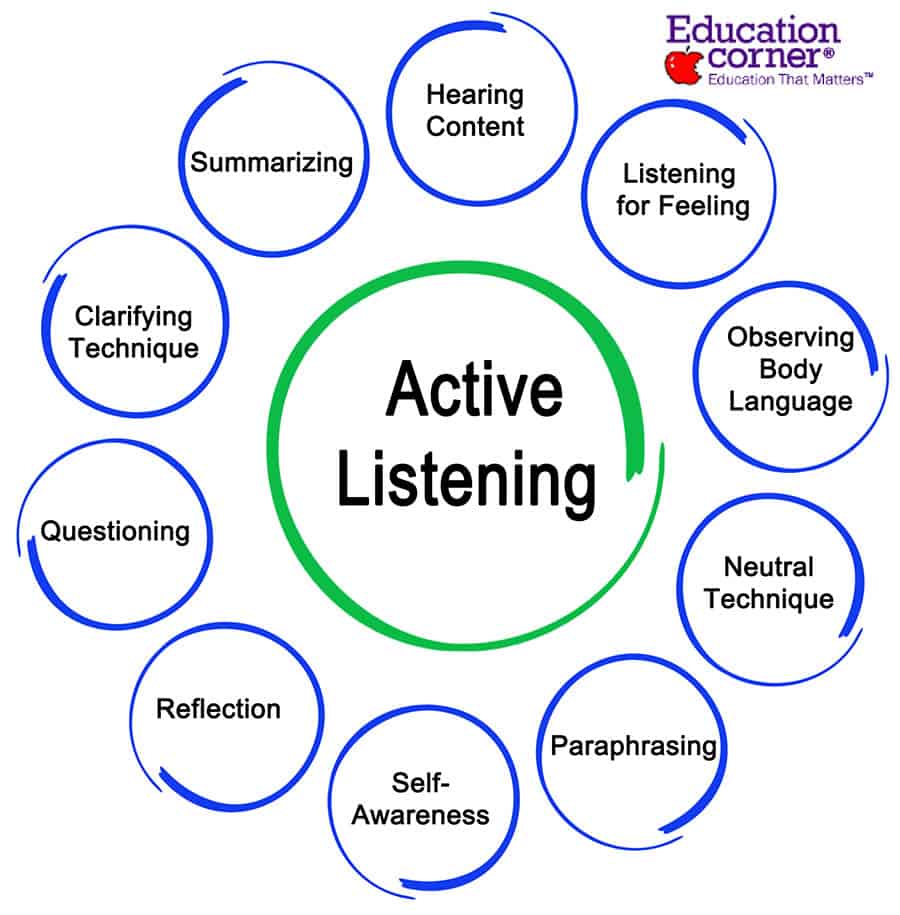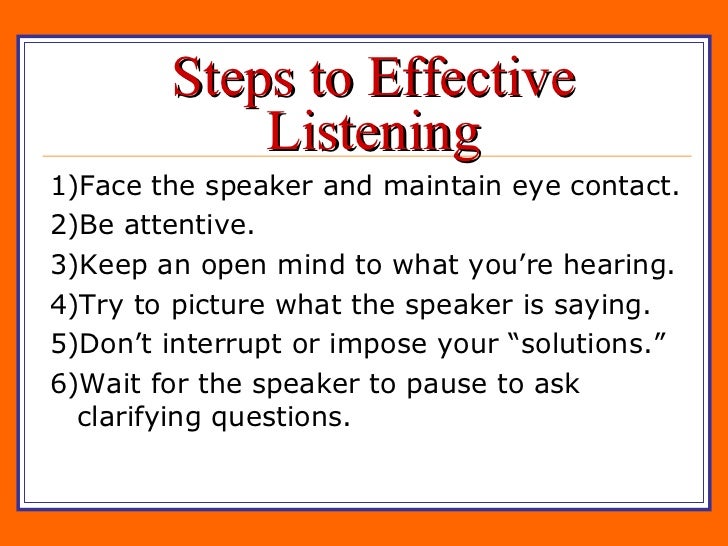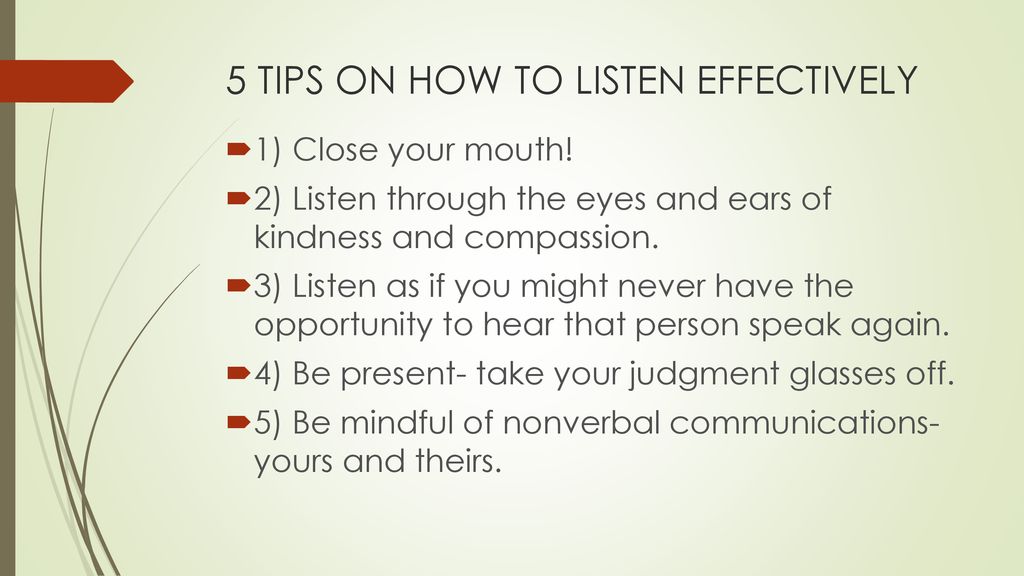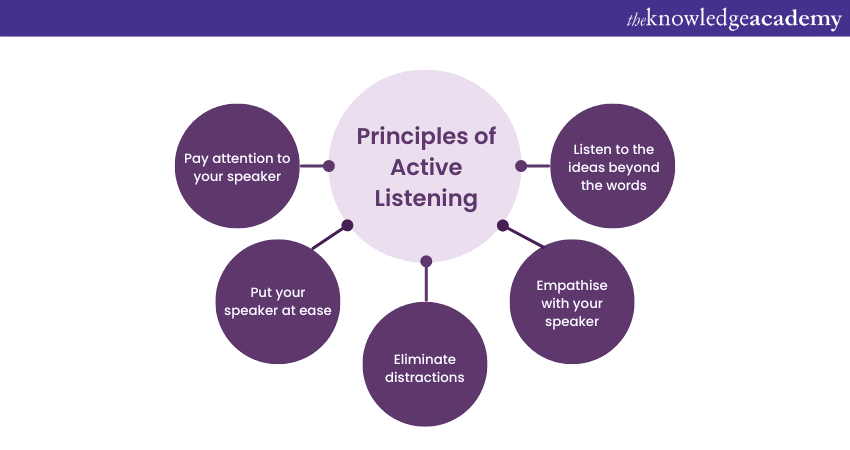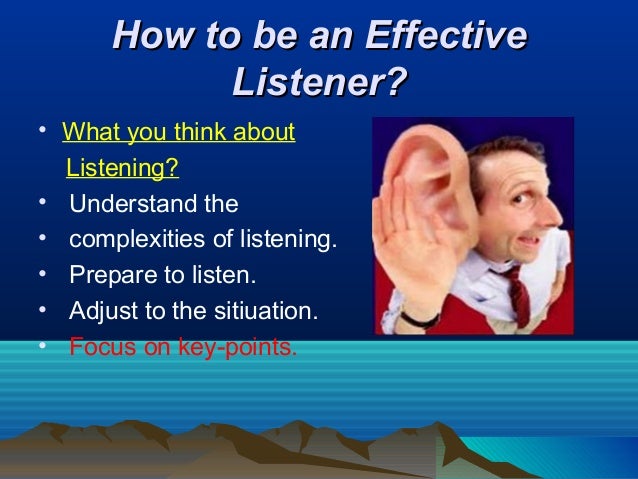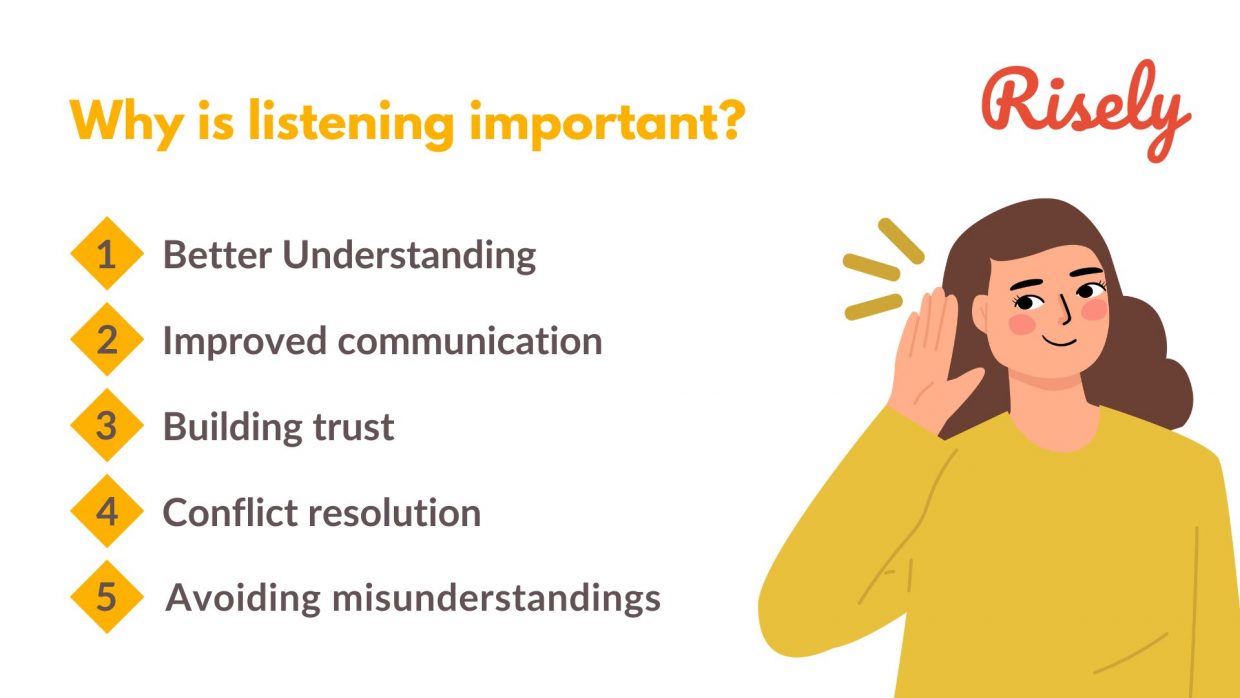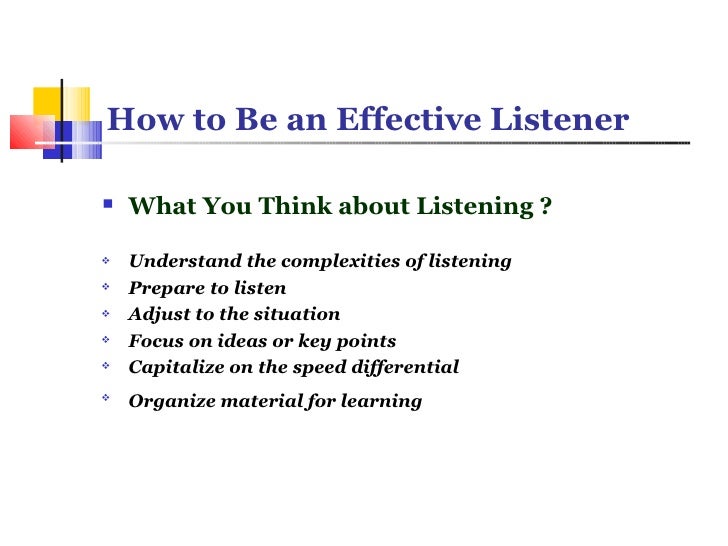In Order To Listen Effectively You Should

Imagine sitting across from a friend, their words washing over you like gentle waves. You nod, you smile, you offer occasional "uh-huhs," but are you truly listening? Or are you simply waiting for your turn to speak, your mind already crafting a witty response or a related anecdote?
Effective listening is a skill often overlooked, yet it's the cornerstone of meaningful communication and strong relationships. It's about more than just hearing the words; it's about understanding the message, both spoken and unspoken, and responding in a way that shows you truly care.
The Art of Active Listening
Active listening isn't passive. It's an active engagement with the speaker, a conscious effort to understand their perspective. To listen effectively, you should first remove distractions.
Put away your phone, turn off the TV, and find a quiet space where you can focus. External distractions can easily derail your attention, preventing you from fully absorbing what the speaker is saying.
Equally important is to minimize internal distractions, like your own thoughts and judgments.
Showing You're Engaged
Nonverbal cues speak volumes. Maintain eye contact, nod your head, and use open body language to show the speaker you're paying attention. Mirroring their posture can also create a sense of rapport and connection.
Occasional verbal affirmations, such as "I see," or "Tell me more," encourage the speaker to elaborate and demonstrate your interest. Be mindful not to interrupt or interject unless it's to seek clarification.
When you do speak, offer reflective statements. Paraphrase what you've heard to ensure you understand correctly, saying things like, "So, if I understand you correctly, you're saying..."
Beyond the Words: Empathy and Understanding
Effective listening goes beyond the surface level. Try to understand the speaker's emotions and perspective. What are they feeling? What are they trying to communicate beyond the literal words?
Empathy is key. Put yourself in their shoes and try to see the situation from their point of view. Even if you don't agree with them, acknowledge their feelings and validate their experience.
Avoid jumping to conclusions or offering unsolicited advice. Sometimes, people simply need to be heard and understood, not fixed. Provide support and understanding.
The Benefits of Better Listening
Improving your listening skills can have a profound impact on your personal and professional life. In relationships, it fosters trust, strengthens bonds, and reduces misunderstandings.
At work, effective listening can improve collaboration, boost productivity, and prevent costly errors. According to a study by the International Listening Association, poor listening skills can lead to miscommunication, decreased morale, and increased conflict.
Furthermore, being a good listener makes you a more effective leader, a more valued colleague, and a more empathetic friend.
Ultimately, effective listening is a gift you give to others and to yourself. It's an act of respect, empathy, and connection. It creates a space for open communication, mutual understanding, and stronger relationships.
So, the next time you're in a conversation, challenge yourself to truly listen. You might be surprised at what you discover, both about the other person and about yourself.
It's about being fully present, giving your undivided attention, and responding with empathy and understanding. And by practicing these skills, you can transform your conversations from superficial exchanges into meaningful connections.


